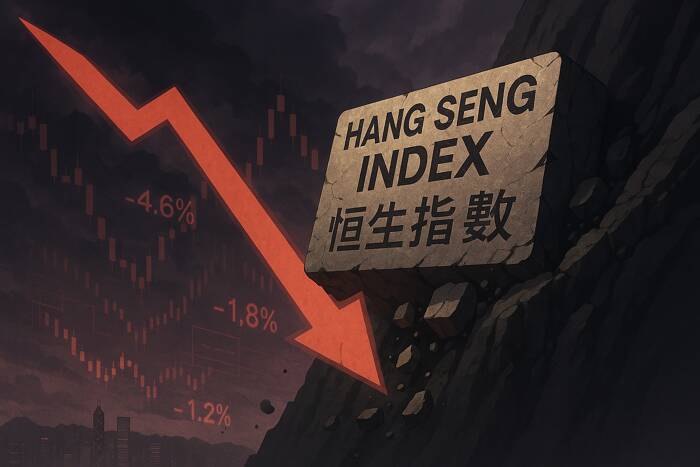An escalation in Israel-Iran tensions could trigger a wider regional conflict, potentially sending crude oil prices above $80. A lasting spike in oil prices may revive inflationary pressures and fuel global economic uncertainty, supporting demand for safe-haven assets.
Concerns about Middle East tensions, the US-China trade agreement, and Beijing’s silence on stimulus weighed on market sentiment. The Hang Seng Index extended its losses from Thursday, with tech and EV stocks facing heavy losses.
Market focus will remain on the Middle East, trade headlines, and Beijing’s stimulus-related news. These factors may determine whether the Hang Seng Index drops below 23,500 or retargets 24,500.
Hang Seng Index Dips as EV and Tech Stocks Stumble
US equity markets posted gains on June 12, with the Nasdaq Composite Index rising 0.24%, as US economic data supported a more dovish Fed stance, offsetting Middle East concerns. Notably, US markets closed before the news hit the wires of Israel attacking Iran. Meanwhile, the Hang Seng Index dropped 0.70% to 23,867 in early trading on June 13. Mainland China’s markets also succumbed to risk aversion, with the CSI 300 and Shanghai Composite Index falling 0.76% and 0.72%, respectively.
EV and Tech Stocks Fall as Markets React to Israeli Attacks
Investor fears of an Iranian retaliation to the Israeli attacks and a wider regional conflict weighed on demand for tech and EV stocks. Tech heavyweights Alibaba (09988) and JD.com (09618) fell 1.75% and 0.91%, respectively, sending the Hang Seng TECH Index down 2.08%.
EV stocks extended Thursday’s losses, with BYD (01211) and Li Auto (02015) tumbling 4.17% and 2.66%, respectively. A regional Middle East conflict could impact EV demand amid increasing government scrutiny of price strategies and the ongoing price war between key players.

